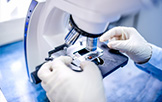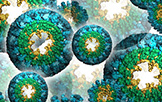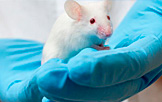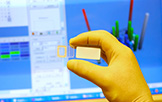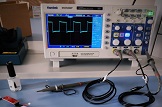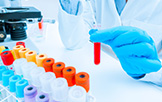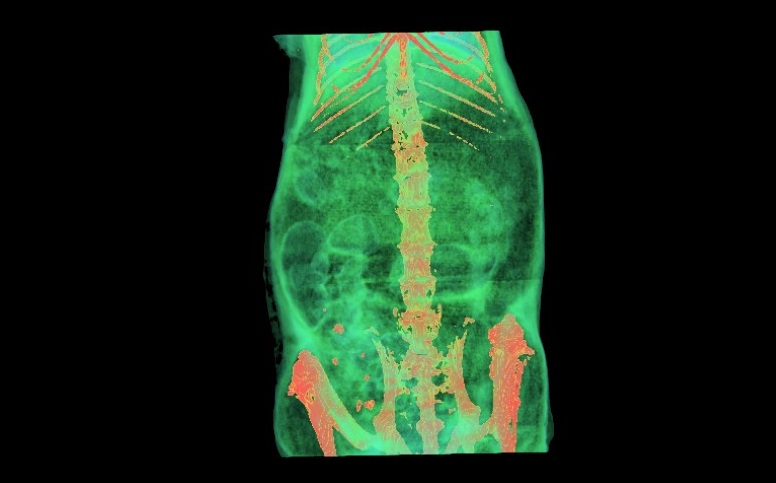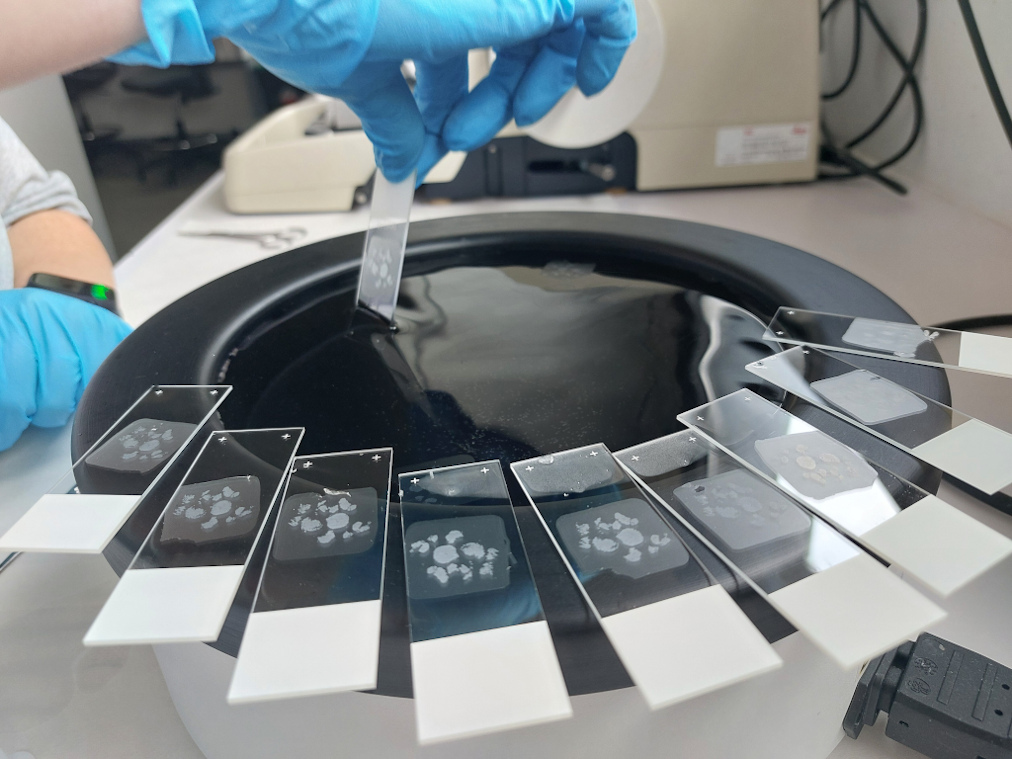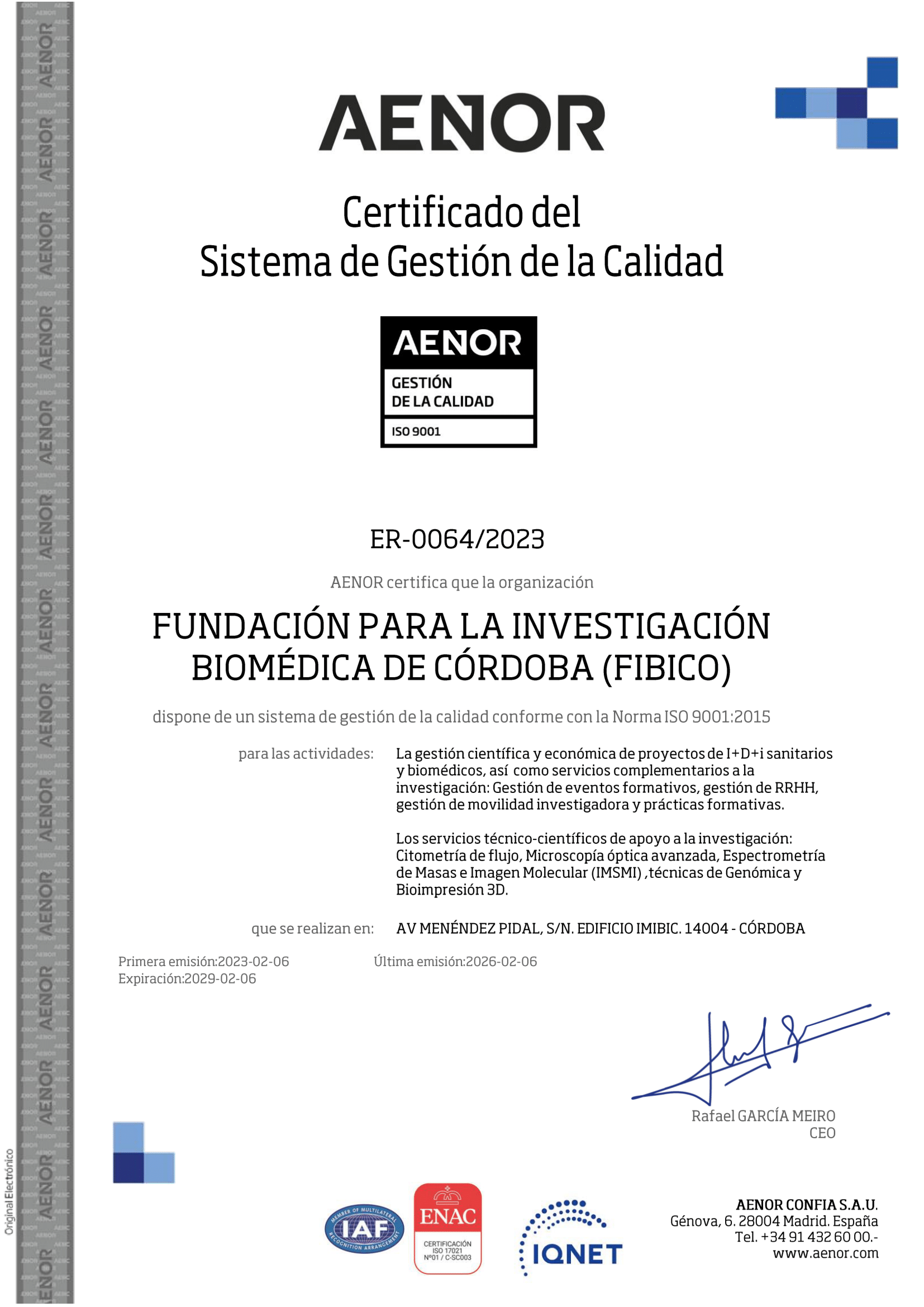Unidades Centrales de Apoyo a la Investigación Biomédica
Genómica y Transcriptómica

La misión de la Unidad de Genómica y Trnscriptómica del IMIBIC es poner a disposición de los investigadores tecnologías de vanguardia y asesoramiento científico-técnico para el desarrollo de técnicas analíticas dedicadas al estudio integral de ADN y ARN, que permitan la obtención de resultados de alta calidad para el desarrollo de una investigación biomédica de excelencia.
La Unidad ofrece sus servicios a investigadores tanto del IMIBIC como del entorno, público y privado. Es importante señalar además el recurso de interacción con otras unidades UCAIB del IMIBIC tales como Bioinformática y Bioestadística, Citometría de Flujo, Microscopía Óptica Avanzada o Espectrometría de Masas (IMSMI).
La Unidad de Genómica y Transcriptómica del IMIBIC está acreditada como "Unidad Asistencial de Genética" (N.I.C.A.: 57798) y dispone de un Sistema de Gestión de Calidad conforme a la Norma de Calidad ISO 9001:2015.
Personal

Álvaro Jiménez Arranz
Responsable de la Unidad
- genomica@imibic.org
- alvaro.jimenez@imibic.org
- +34 957 21 37 59 (Corporativo 3759)

Beatriz Domingo Escudero
Especialista Técnica
- beatriz.domingo@imibic.org
- +34 957 21 37 59 (Corporativo 3759)

Pilar Rubín González de Canales
Técnica de laboratorio
- pilar.rubin@imibic.org
- +34 957 21 37 58 (Corporativo 3758)

María García Cruz
Técnica de Laboratorio
- maria.garciacruz@imibic.org
- +34 957 21 37 58 (Corporativo 3758)
Equipamiento
NGS (Next Generation Sequencing)
La Unidad cuenta actualmente con 2 secuenciadores NGS basados en tecnología SBS (Sequencing by Synthesis) de Illumina:
- MiSeq
- NextSeq 2000
Las diferentes capacidades de ambos secuenciadores conceden una alta versatilidad a los servicios NGS de la Unidad, permitiendo ofrecer aplicaciones que van desde el estudio del gen 16S rRNA bacteriano hasta el análisis de genomas humanos.
nCounter FLEX / Tecnología NanoString
El sistema nCounter de Nanostring usa códigos de barras moleculares unidos a sondas específicas que permiten la detección y conteo de cientos de dianas en una sola reacción sin necesidad de amplificación ni retrotanscripción, disminuyendo así el sesgo asociado e incrementando la reproducibilidad. Entre sus múltiples aplicaciones están el análisis de expresión génica, la fusión de genes, la variación en el número de copias (CNV) y el análisis simultáneo de mRNAs y miRNAs. Estas aplicaciones, junto a su certificado Dx/CE-IVD para la realización de análisis con calidad asistencial, convierten al nCounter en una herramienta de gran interés para su uso en clínica.
Tecnologías de célula única (single-cell)
La Unidad cuenta en la actualidad con 2 plataformas de análisis de célula única:
- Nadia
- C1
Estas tecnologías permiten, entre otras posibilidades, analizar y comparar perfiles de expresión génica a nivel de célula individual gracias al uso conjunto con el secuenciador NGS NextSeq 2000 o la plataforma de qPCR de alto rendimiento Biomark HD-Juno.
PCR digital (dPCR): QX200 Droplet Digital PCR System
La PCR digital ofrece una alternativa más precisa y sensible a la qPCR convencional para la cuantificación absoluta y la detección de alelos raros sin necesidad de estándares o controles endógenos debido a la partición en nanogotas.
PCR cuantitativa (qPCR)
La Unidad cuenta actualmente con 4 plataformas de qPCR dirigidas, entre otras aplicaciones, al genotipado y estudio de expresión génica:
- Light Cycler 96 (sistema de placas de 96 pocillos)
- QuantStudio 5 (sistema de placas de 96 pocillos)
- QuantStudio 7 Flex (sistema con bloques intercambiables de placas de 96 y 384 pocillos y TaqMan Array Cards)
- Biomark HD-Juno (sistema de nanofluidica de alto rendimiento)
En el caso del personal investigador del IMIBIC, la Unidad ofrece la posibilidad de uso de las plataformas de qPCR en régimen de “autoservicio” (sin operador técnico).
Equipamiento de Control de Calidad
La Unidad cuenta con diferentes tecnologías destinadas a la cuantificación, análisis de calidad y determinación del tamaño de los fragmentos de ácidos nucleicos:
- DeNovix DS-11 (Espectrofotómetro)
- Quantus (Fluorímetro)
- 2200 TapeStation (Microelectroforesis)
Servicios
- Asesoramiento científico-metodológico en el diseño experimental, elección y optimización de técnicas de análisis genómico y transcriptómico
- Asesoramiento y soporte técnico en el diseño de paneles de genes para su estudio mediante NGS o tecnología Nanostring
- Soporte científico-técnico en el uso de plataformas de qPCR y diseño de sondas
- Control de calidad de ácidos nucleicos (espectrofotometría, fluorimetría y microelectroforesis)
- Estudios de expresión génica dirigida (hasta 800 genes) mediante tecnología Nanostring
- Análisis dirigido de fusión de genes mediante tecnología Nanostring
- Screening de hasta 800 miRNAs en células, tejido y suero/plasma mediante tecnología Nanostring
- Estudios de genotipado y expresión génica mediante qPCR
- Cuantificación absoluta mediante Droplet Digital PCR (análisis de carga viral…)
- Biopsia Líquida (cfDNA y cfRNA): Detección de mutaciones raras mediante ddPCR y análisis de SNVs, indels, CNVs, fusiones y perfiles de expresión génica mediante NGS
- Análisis de SNVs, Indels y CNVs en células y tejido mediante NGS o tecnología Nanostring
- Caracterización de poblaciones bacterianas mediante secuenciación del gen 16S rRNA y secuenciación shotgun
- Secuenciación dirigida para la caracterización, entre otros, de Micobacterias y SARS-CoV-2 (protocolos de vigilancia epidemiológica)
- RNA-Seq
- Single-cell RNA-Seq y single-nuclei RNA-Seq
- ATAC-Seq
- REAP-Seq
- ChIP-Seq
- Análisis de metilación de ADN mediante NGS
- Fabricación de librerías NGS
- Secuenciación NGS mediante Illumina MiSeq y NextSeq 2000
- Formación y soporte técnico en el uso de softwares de análisis de datos relacionados con las tecnologías de la Unidad
Proyectos
Algunos de los proyectos en los que participa o ha participado recientemente la Unidad de Genómica y Transcriptómica del IMIBIC son:
- Plataforma diagnóstica de alto rendimiento para medicina personalizada en pacientes con Leucemia Aguda Mieloblástica. Grupo Fundación Pethema. Instituto de Salud Carlos III.
- Caracterización molecular del Cáncer de Mama Gestacional. IMIBIC. Instituto de Salud Carlos III.
- EMBARCAM. Estudio observacional ambispectivo de registro de embarazo y Cáncer de Mama. Grupo Español de Investigación en Cáncer de Mama (GEICAM).
- EpiGEICAM. Subtipos moleculares de Cáncer de Mama: factores de riesgo y su influencia pronóstica en EpiGEICAM. Grupo Español de Investigación en Cáncer de Mama (GEICAM).
- RETUD. Estudio epidemiológico observacional multicéntrico descriptivo sobre tumores digestivos. Programa de NGS en Colangiocarcinomas. Grupo de Tratamiento de los Tumores Digestivos (TTD).
- VISNÚ. CTCs, alteraciones moleculares y su correlación con el tratamiento en CCRm. Grupo de Tratamiento de los Tumores Digestivos (TTD).
- ONCO-NGS. Evaluación de la utilidad de la NGS en el análisis molecular de tumores a través de un comité multidisciplinar. Hospital Universitario Reina Sofía (HURS).
- PERSEIDA. Determinación del estado mutacional del RAS en biopsias líquidas de sujetos con Cáncer Colorrectal Metastásico RAS no mutado en primera línea: estudio observacional, prospectivo y multicéntrico en España. Amgen.
Destacados
- Desde el inicio de la puesta en marcha de la UCAIB de Genómica y Transcriptómica a mediados del 2015, el número de usuarios y proyectos ha ido creciendo progresivamente, analizándose actualmente más de 20.000 muestras/año con las tecnologías de la Unidad.
- La Unidad de Genómica y Transcriptómica del IMIBIC está acreditada desde 2021 como "Unidad Asistencial de Genética" (N.I.C.A.: 57798) y participa en un equipo multidisciplinar, junto a varios departamentos del Hospital Universitario Reina Sofía (HURS), dirigido a la implementación de protocolos de diagnóstico genómico en el Servicio Andaluz de Salud. Lleva a cabo servicios desarrollados junto a los Departamentos de Anatomía Patológica, Oncología y Hematología del HURS y forma parte del Comité de Investigación en Oncología Clínica Molecular, enfocado a la valoración de la NGS como herramienta diagnóstica, pronóstica y terapéutica en pacientes oncológicos.
- La Unidad de Genómica y Transcriptómica participa como laboratorio colaborador en proyectos de la Fundación Pethema y los grupos TTD (Grupo de Tratamiento de los Tumores Digestivos) y GEICAM (Grupo Español de Investigación en Cáncer de Mama). Además, la Unidad colabora en diferentes ensayos clínicos con la empresa farmacéutica y en validaciones interlaboratorio de kits de diagnóstico genético/genómico de distintas compañías.
- La UCAIB de Genómica y Transcriptómica forma parte de varias redes de laboratorios, como son la red EATRIS (European Infraestructure for Traslational Medicine), Innolabs y la red de laboratorios Novartis.

